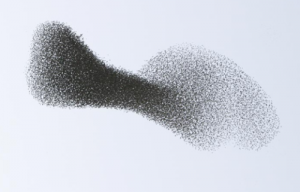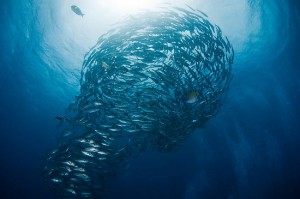

“The more you can change, the more you can adapt. Adaptation is fitness, adaptation is survival. It’s deeper than intelligence, deeper than tissue; it is cellular, it is axiomatic.”
The Thing, Peter Watts
There have been many assumptions about what the future has in store for us and how to plan for such situations. However, it is my belief that instead of preparing for a situation that has not happened and may not happen, we should be looking at how to fix/adapt to whatever may be. The answer maybe a system that is able to take situations and indiscriminately judge what is of “greater benefit.” These systems need to be able to be easily and infinitely configurable so that new circumstances can be handled. However, the amount of calculations and decisions are infinite.
The notion of self-stabilizing systems has existed since 1974 and has gained momentum and importance in multiple disciplines since then. E.W. Dijkstra presented in 1974 a computing system that, instead of detecting errors and attempting to correct it, would attempt to achieve a “legitimate state” without explicitly targeting the errors. This system can also be seen in biology as well. Known as the swarm intelligence it offers an answer for addressing incredibly complex systems. Debora M. Gordon explains that individual ants are not intelligent and yet ant colonies are. Through numerous inputs by each individual ant possessing on the most simplistic of responses allows the colony to reach a consensus on actions that needs to take place. This allows the colony to constantly reach a “legitimate state.”
“Why does anyone simplify anything? To reduce the variable set. To manage the unmanageable”
The Island, Peter Watts
Humans react very similarly to the ants as well. The Internet and social media sites, arguably, operate on the same level. Companies use the information provided by each individual unknowingly and profit off of popular topics and items. Trends spawn and die daily by the cumulative hands of each individual. Swarm intelligence in humans can be applied at a global scale as well. For the first time in history, humans have become a significant force in irrevocably changing the planet. The desire of each individual for shelter and food and the means to possess them translates to a global scale as the entire human population grows and adapts to new processes. However, as a collective humans need to understand that we are still part of an even larger system that encompasses all things living and not and that we need to find a “legitimate state” that ensures the future.